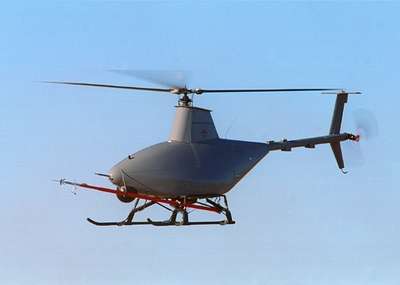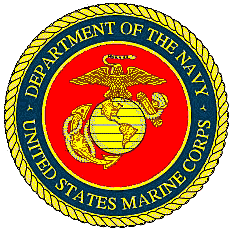Fri, Apr 18, 2003
Northrop Grumman Corporation's Integrated Systems sector
continued its successful flight testing of the U.S. Navy's RQ-8A
Fire Scout vertical takeoff and landing tactical unmanned aerial
vehicle in March with the first flight fully operated from the U.S.
Marine Corps' (USMC) S-788, a HMMWV-mounted ground control station
(GCS).

Conducted at the Webster Field annex of Naval Air Station
Patuxent River (MD), the flight fulfilled a key program test
objective of demonstrating Fire Scout operation by both U.S. Navy
and USMC ground control stations. (Fire Scout flew its first flight
operated by the Navy's S-280 GCS February 10.)
The S-788-operated flight was one of two Fire Scout flights
conducted on the same day. The first flight, a 20-minute
demonstration flight for senior U.S. Army aviation leadership, was
operated from the Navy's S-280 GCS. Less than an hour later, the
Fire Scout was launched for a functional check flight under the
control of the S-788 GCS. The back-to-back test flights marked the
first time that Fire Scout flights were operated from Marine Corps
and Navy ground control stations on the same day.

"The short turnaround time between flights and the ease of
switching from Navy ground control to Marine Corps ground control
provided a compelling demonstration of the robustness and
flexibility of the Fire Scout system design," said T. Scott
Winship, Northrop Grumman's Fire Scout program manager. "These test
results reinforce our confidence in Fire Scout's ability to provide
high-value support for critical Navy and Marine Corps
missions."
 During
the Marine Corps-controlled flight, the S-788 GCS used its tactical
control datalink to uplink payload command and control to Fire
Scout and to downlink imagery. The ARC-210 datalink was used for
air vehicle command and control. Use of this command and control
software continues to reduce risk as the system is prepared to
qualify and test the tactical control system software during flight
test later this spring.
During
the Marine Corps-controlled flight, the S-788 GCS used its tactical
control datalink to uplink payload command and control to Fire
Scout and to downlink imagery. The ARC-210 datalink was used for
air vehicle command and control. Use of this command and control
software continues to reduce risk as the system is prepared to
qualify and test the tactical control system software during flight
test later this spring.
As in all previous Fire Scout flight tests, the USMC and Navy
test flights were fully autonomous missions that included vertical
takeoff, accurate navigation, full payload operation and return to
a predetermined hover point in preparation for landing, all without
operator intervention.
More News
From 2021: The Inside Skinny On What Being An ANN Oshkosh Stringer Is All About By ANN Senior Stringer Extraordinare, Gene Yarbrough The annual gathering at Oshkosh is a right of p>[...]
Video Showed That During The Takeoff, The Nose Baggage Door Was Open On May 10, 2025, about 0935 eastern daylight time, a Piper PA-32RT-300, N30689, was destroyed when it was invol>[...]
Get The Latest in Aviation News NOW on Instagram Are you on Instagram yet? It's been around for a few years, quietly picking up traction mostly thanks to everybody's new obsession >[...]
"I think what is key, we have offered a bonus to air traffic controllers who are eligible to retire. We are going to pay them a 20% bonus on their salary to stay longer. Don't reti>[...]
Aero Linx: Pilot Briefing The gathering, translation, interpretation, and summarization of weather and aeronautical information into a form usable by the pilot or flight supervisor>[...]
 Oshkosh Memories: An Aero-News Stringer Perspective
Oshkosh Memories: An Aero-News Stringer Perspective NTSB Prelim: Piper PA32RT
NTSB Prelim: Piper PA32RT ANN FAQ: Follow Us On Instagram!
ANN FAQ: Follow Us On Instagram! Aero-News: Quote of the Day (05.28.25)
Aero-News: Quote of the Day (05.28.25) ANN's Daily Aero-Term (05.28.25): Pilot Briefing
ANN's Daily Aero-Term (05.28.25): Pilot Briefing





